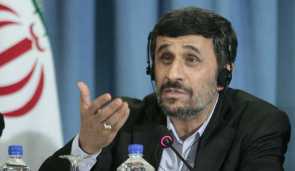The United States Treasury is close to a decision whether to blacklist more banks that appear to be defying sanctions against Iran, including an institution in Turkey, a senior Treasury official said on Tuesday.
David Cohen, nominated to be Treasury’s undersecretary for terrorism and financial crimes, told a U.S. Senate confirmation hearing that he will vigorously enforce the Comprehensive Iran Sanctions, Accountability and Disinvestment Act (CISADA)

The law, aimed at curbing Iran’s nuclear program, effectively requires banks to choose between dealing with the U.S.-led financial system or to continue doing business with Iran.
Members of the Senate Banking Committee questioned Cohen on why Treasury had not sanctioned any banks under CISADA, which was passed in July 2010 to enforce tougher UN sanctions against Iran.
“We are pursuing the leverage” against banks dealing with Iran, Cohen said. “Our first option is to get them to stop. Our second best option is to apply sanctions. Without getting into the details of any particular investigation, we are getting close to a decision point on several institutions,” Cohen did not name any of the banks, but said that one institution in Turkey was effectively violating the sanctions.
“We are committed to enforcing the law,” Cohen added. “Generically, we have a financial institution (in Turkey) that is not responsive to our overtures and it is engaged in activity that is sanctionable under CISADA. We will pursue that very vigorously.”
Senator Robert Menendez, a Democrat from New Jersey, said he was concerned that Treasury had not adequately enforced the CISADA law.
“I am seriously concerned that as one of the prime movers of that legislation, that a sanctions regime that ultimately goes largely unenforced or to low-level players, sends the message of a toothless tiger,” Menendez said.
He added that he wanted a sense that Cohen, who is now serving as acting undersecretary, would pursue sanctions under CISADA before he would support Cohen’s nomination.
via U.S. Treasury nears decision on expanding Iran sanctions – Haaretz Daily Newspaper | Israel News.



